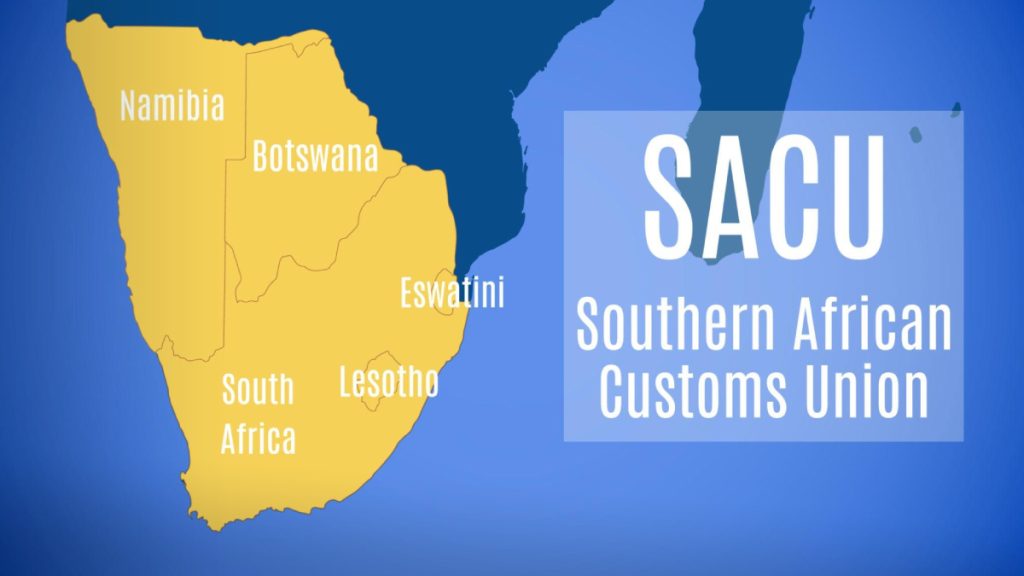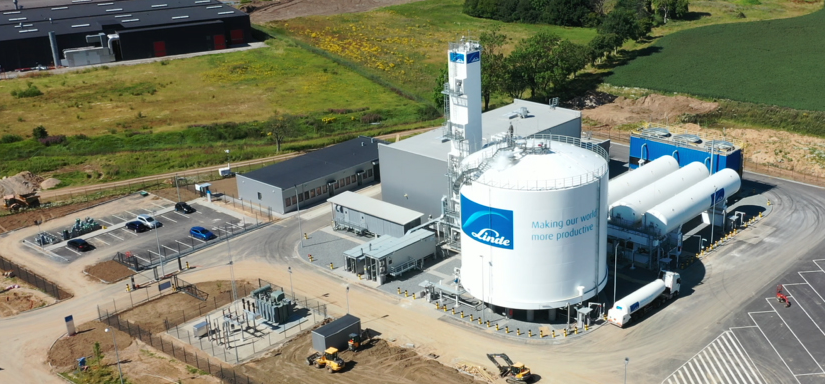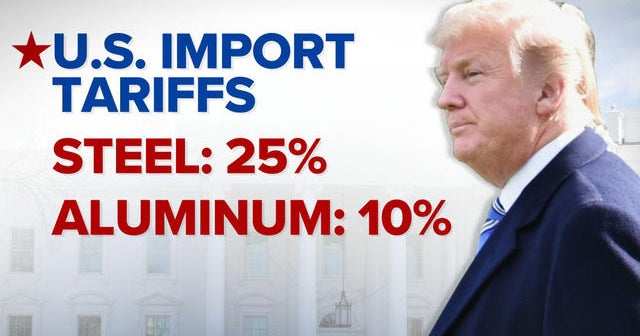Negotiations To Resolve South Africa-Tanzania Farm Import Dispute

Table of Contents
Key Issues Fueling the South Africa-Tanzania Farm Import Dispute
The core of the South Africa-Tanzania farm import dispute lies in a complex interplay of trade barriers and differing regulatory approaches. These issues significantly hinder the free flow of agricultural products between the two nations.
-
High import tariffs imposed by Tanzania on South African agricultural products: Tanzania's imposition of high tariffs on various South African farm goods, including fruits, vegetables, and processed foods, makes them less competitive in the Tanzanian market. This directly impacts South African farmers' profitability and market access. These tariffs are often cited as a major obstacle in resolving the dispute.
-
Concerns from South Africa regarding Tanzania's SPS regulations and their impact on market access: Sanitary and Phytosanitary (SPS) measures, designed to protect human, animal, and plant health, are a key area of contention. South Africa alleges that some of Tanzania's SPS regulations are unnecessarily stringent, creating non-tariff barriers that limit the import of South African agricultural products. This lack of harmonization in SPS standards creates significant challenges for South African exporters.
-
Allegations of unfair competition and dumping: Accusations of unfair competition and dumping practices further complicate the situation. These claims, if substantiated, could trigger retaliatory measures, escalating the dispute and harming trade relations further. Resolving these allegations is crucial for building trust and fostering future trade cooperation.
-
The impact of the dispute on regional trade integration within the Southern African Development Community (SADC): The dispute negatively impacts the broader regional integration goals of SADC. Disputes like these undermine the spirit of collaboration and free trade envisioned by the community. This necessitates a collaborative regional approach to resolving the issue.
-
Role of bilateral trade agreements and regional trade blocs: Existing bilateral trade agreements and the framework of regional trade blocs like SADC are supposed to facilitate smoother trade flows. However, the current dispute highlights the limitations of these agreements when faced with significant trade barriers and disagreements over regulations.
Negotiation Strategies and Diplomatic Efforts
Both South Africa and Tanzania have employed various strategies to resolve the South Africa-Tanzania farm import dispute. These efforts have involved both bilateral and multilateral approaches.
-
Recent high-level meetings and diplomatic engagements between South Africa and Tanzania: Several high-level meetings and diplomatic discussions have taken place between government officials from both countries to try and find common ground. These negotiations are aimed at building trust and finding a path towards a mutually acceptable agreement.
-
The role of SADC and the African Union in mediating the dispute: Regional organizations such as SADC and the African Union have played a crucial role in mediating the dispute. These bodies offer a platform for dialogue and can assist in finding compromise solutions that consider the broader regional context.
-
Use of technical committees to address specific concerns (SPS measures, tariff structures): Technical committees comprised of experts have been established to address specific issues, like harmonizing SPS measures and finding a fair and transparent tariff structure. These committees provide a more detailed and focused approach to resolving the technical aspects of the dispute.
-
Exploring alternative dispute resolution mechanisms: If bilateral negotiations fail, both countries might consider exploring alternative dispute resolution mechanisms, such as arbitration or mediation through international organizations. These options provide a structured and impartial approach to resolving the outstanding disagreements.
-
Public statements and media releases from both governments: Public statements and media releases by both governments play a crucial role in shaping public opinion and clarifying the positions of each nation. Transparency in communication is vital for building trust and ensuring a successful resolution.
Economic Impacts and Consequences of the Dispute
The South Africa-Tanzania farm import dispute has significant economic repercussions for both countries.
-
Loss of market access for South African farmers exporting to Tanzania: South African farmers face reduced market access, impacting their income and livelihood. This loss of export revenue affects the overall agricultural sector's performance.
-
Increased costs for Tanzanian consumers due to limited supply and higher prices: Tanzanian consumers bear the brunt of higher prices for agricultural products due to reduced imports and limited supply. This impacts household budgets and can negatively impact food security at a consumer level.
-
Impact on employment and livelihoods in the agricultural sector of both countries: The dispute directly affects employment and livelihoods within the agricultural sector of both nations, potentially leading to job losses and reduced incomes for farmers and workers involved in agricultural production and trade.
-
Potential damage to investor confidence and foreign direct investment: The uncertainty caused by the dispute can damage investor confidence and deter foreign direct investment in the agricultural sector of both countries, hindering economic growth.
-
Implications for regional food security: The dispute can also have significant implications for regional food security, particularly if it leads to reduced agricultural production and trade within the region. Food availability and affordability are directly affected.
Potential Solutions and Future Outlook for South Africa-Tanzania Agricultural Trade
Several potential solutions could resolve the South Africa-Tanzania farm import dispute.
-
Gradual reduction of tariffs and trade barriers: A phased reduction of tariffs and other trade barriers could ease market access for South African agricultural products. This gradual approach minimizes immediate shock to the Tanzanian market while still promoting greater trade between the countries.
-
Harmonization of SPS measures to meet international standards: Harmonizing SPS measures with international standards would create a level playing field for all agricultural exporters, reducing the risk of non-tariff barriers and promoting fair trade. This builds mutual confidence between the two countries.
-
Strengthening cooperation on agricultural development and technology transfer: Increased cooperation on agricultural research, development, and technology transfer could enhance the productivity and competitiveness of the agricultural sector in both countries. This mutually beneficial approach fosters growth and sustainability.
-
Building trust and transparency in trade relations: Building trust and transparency in trade relations is essential for long-term cooperation and avoiding future disputes. Open communication and mutual respect are key to achieving long-term collaboration.
-
Increased dialogue and collaboration between the private sectors of both countries: Encouraging direct dialogue and collaboration between the private sectors of both countries can lead to innovative solutions and mutual understanding. This fosters closer trade relationships and creates opportunities for both sides.
Conclusion
The South Africa-Tanzania farm import dispute highlights the challenges in achieving seamless trade within the African continent. Successful resolution requires a commitment to dialogue, compromise, and a focus on mutually beneficial outcomes. Addressing the key issues, such as tariffs and SPS regulations, through collaborative efforts and transparent negotiation processes is crucial for restoring stability to agricultural trade and promoting economic growth in both nations. The active involvement of regional organizations is also vital in ensuring a fair and sustainable resolution.
Call to Action: Further research into the ongoing negotiations surrounding the South Africa-Tanzania farm import dispute is crucial to understanding the complexities of trade within Africa. Stay informed about the developments by following reputable news sources and official statements to contribute to a better understanding of the issues and potential solutions for resolving this important trade dispute. Let's work together towards a solution to this South Africa-Tanzania farm import dispute.

Featured Posts
-
 Ariana Biermann And Boyfriend Enjoy Alaskan Escape
Apr 27, 2025
Ariana Biermann And Boyfriend Enjoy Alaskan Escape
Apr 27, 2025 -
 Elina Svitolina Dominates Anna Kalinskaya In Us Open First Round
Apr 27, 2025
Elina Svitolina Dominates Anna Kalinskaya In Us Open First Round
Apr 27, 2025 -
 Pfc Dividend 2025 Fourth Cash Reward For Fy 25 On March 12th
Apr 27, 2025
Pfc Dividend 2025 Fourth Cash Reward For Fy 25 On March 12th
Apr 27, 2025 -
 Canadian Election Carney Highlights Trumps Aggressive Trade Stance
Apr 27, 2025
Canadian Election Carney Highlights Trumps Aggressive Trade Stance
Apr 27, 2025 -
 Ecbs Simkus Trade Headwinds Could Lead To Two Additional Interest Rate Cuts
Apr 27, 2025
Ecbs Simkus Trade Headwinds Could Lead To Two Additional Interest Rate Cuts
Apr 27, 2025
Latest Posts
-
 Alberta Economy Hit Dow Project Delay And Tariff Impacts
Apr 28, 2025
Alberta Economy Hit Dow Project Delay And Tariff Impacts
Apr 28, 2025 -
 Dows 9 B Alberta Project Delayed Collateral Damage From Tariffs
Apr 28, 2025
Dows 9 B Alberta Project Delayed Collateral Damage From Tariffs
Apr 28, 2025 -
 Hudsons Bays Final Days Massive Discounts On Closing Stock
Apr 28, 2025
Hudsons Bays Final Days Massive Discounts On Closing Stock
Apr 28, 2025 -
 Final Hudsons Bay Stores 70 Off Liquidation Event
Apr 28, 2025
Final Hudsons Bay Stores 70 Off Liquidation Event
Apr 28, 2025 -
 Hudsons Bay Closing Sale Deep Discounts On Remaining Inventory
Apr 28, 2025
Hudsons Bay Closing Sale Deep Discounts On Remaining Inventory
Apr 28, 2025
